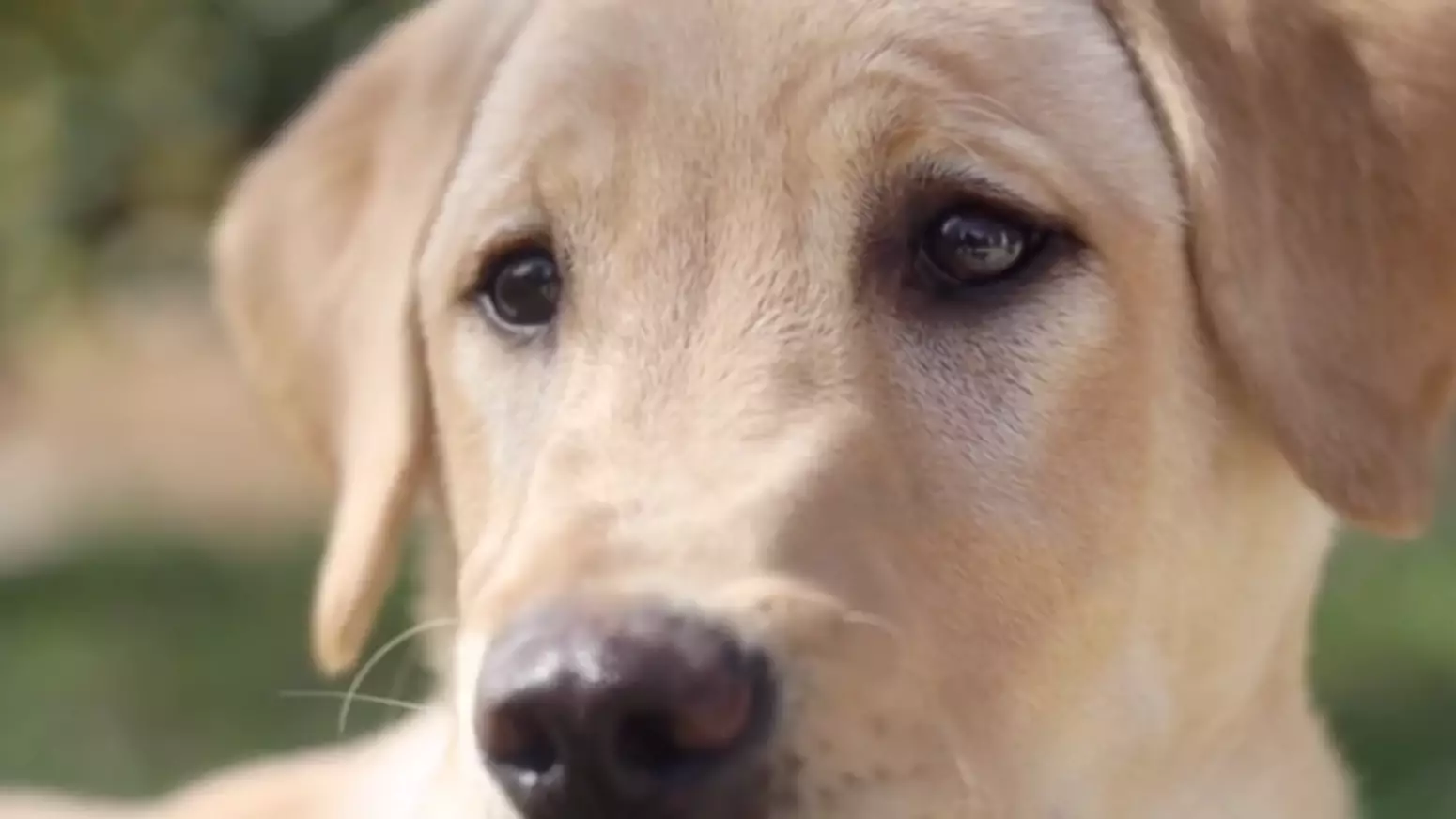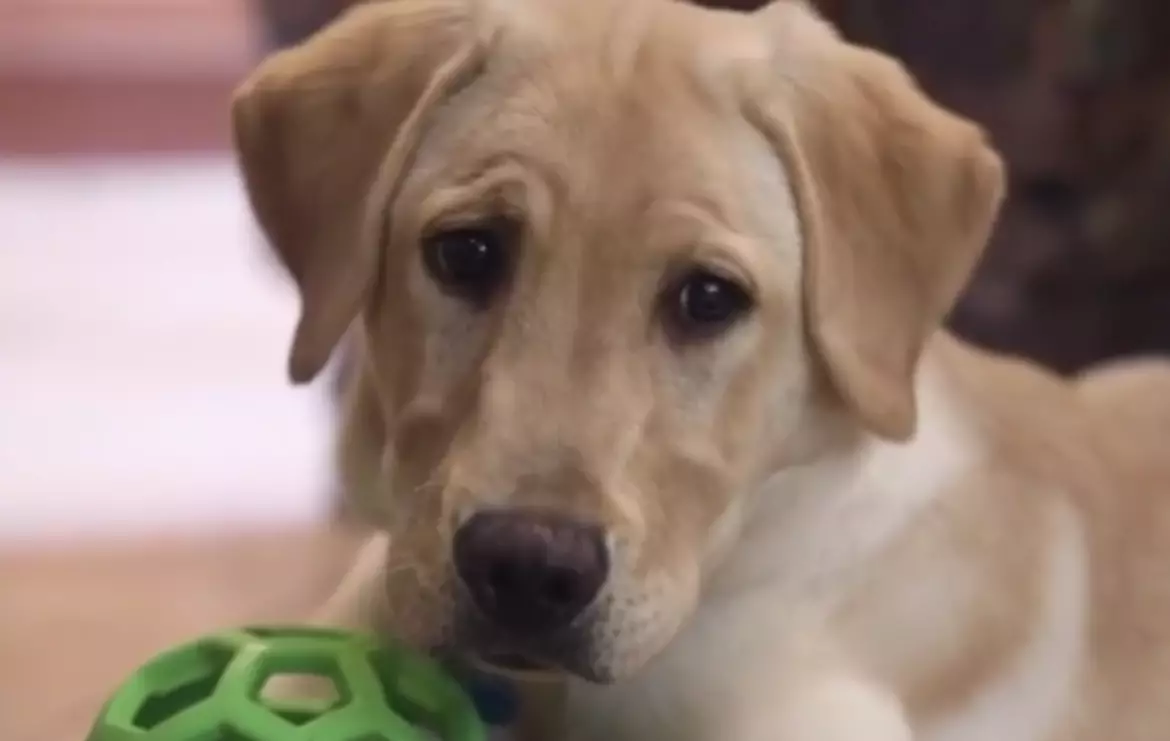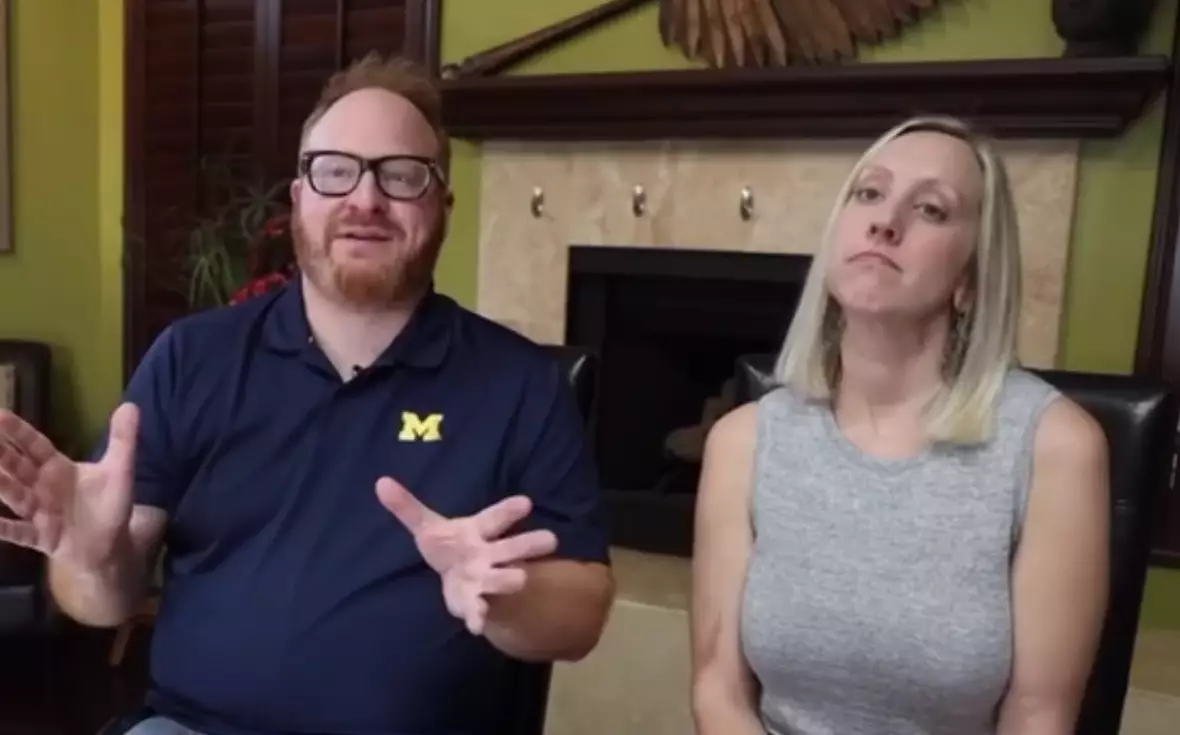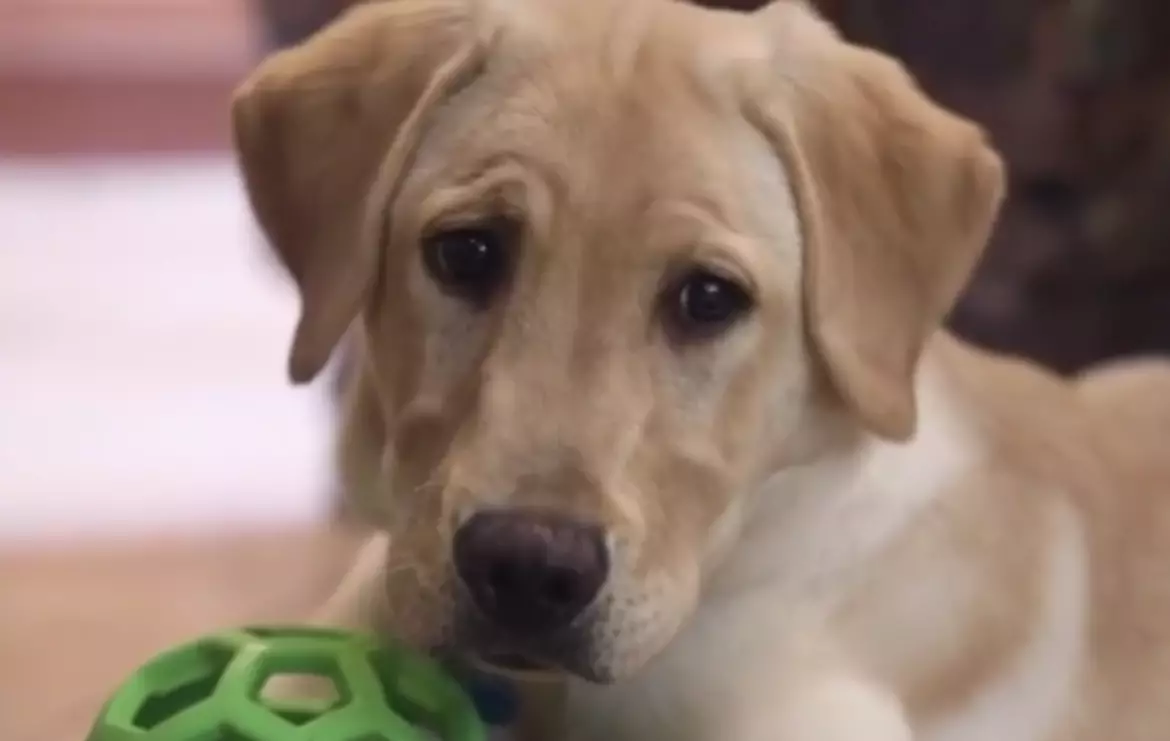
A family has forked out tens of thousands of dollars to clone their beloved pet dog Marley.
The Labrador died from cancer five years ago and American couple Alicia and David Tschirhart couldn't bear the thought of living without her.
So they decided to enlist the help of a company that uses the same cloning technique that produced a genetic copy of Dolly the Sheep in 1996. It's a procedure that cost the couple $47,800 (£37,100 / AUD $73,000), which they say was money well spent.

They were particularly driven to clone Marley because she saved Alicia's life while they were out on a hike. The Escondido local told KGTV: "I just saw this really big stick and so I was focused on grabbing that. I didn't even see the snake until Marley started clawing."
Advert
Marley chased off the incredibly venomous rattlesnake and Alicia thought it would be fitting to bring her dog back from the dead, so to speak, as a thank you.
David said it would be amazing for their kids to grow up with a dog nearly genetically identical to the one they adored so much.
"I just couldn't think of any better way to do that. To have, you know, their years growing up to have Ziggy around," he told KUSI.

So Alicia and David went to ViaGen Pets to clone Marley.
Advert
For the process to work, scientists need to take a biopsy of the animal either while it's living or shortly after it's died. Once they have the necessary cells, they fuse it with the nucleus of a female dog's egg and then let nature do the rest of the work.
The idea of cloning animals is a contentious one, however.

The Humane Society of the United States states: "Animal cloning is a destructive, needless and often frivolous enterprise. Cloning is a highly experimental procedure, with an enormous number of failures. Most cloned animals die in gestation or at birth. The relatively few survivors often suffer physical abnormalities, severe and chronic pain and other serious conditions.
Advert
"Cloning experiments reflect a spirit common to all systematic forms of cruelty to animals. Such experiments reveal a recklessness and hubris, rejecting the prior claims of nature and the inherent dignity of animal life. They treat animals as commodities alone, instead of as living individuals with needs and natures of their own."
But for Alicia and David, it was the only chance of seeing their dear canine pal in the flesh again.
Featured Image Credit: KGTV